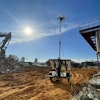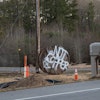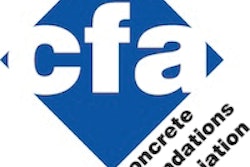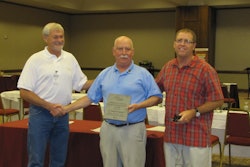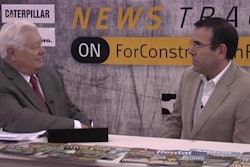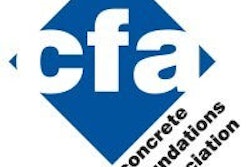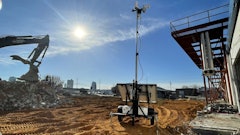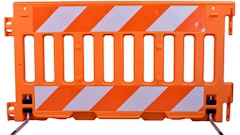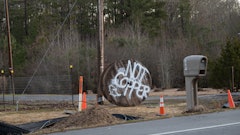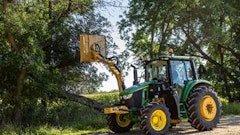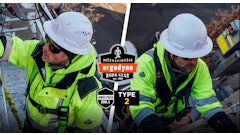The Concrete Foundations Association (CFA) announced today that member companies now have access to a model or draft alternate fall protection plan conforming to the requirements of OSHA 1926.502(k). This document details the recommended plan for companies delivering concrete foundations for projects identified as "residential construction" by OSHA's recently implemented STD 03-11-002.
"The Alternate Fall Protection Plan is a collaborative effort of CFA staff and key CFA member contractors with a passion for providing solutions not just for their company but for the greater good of all companies in the network," states Ed Sauter, CFA Executive Director. "The sole purpose for this draft plan is to pass along the efforts of a few to benefit the many, a trademark of many similar efforts by CFA members."
Over the course of about six months, CFA members have been consumed by the looming implementation of the latest OSHA standard for fall protection. This standard is a dramatic change of policy over recent years, no longer exempting those in the residential construction industry from fall protection measures. Still, there are problems with the application of STD 03-11-002 to our industry. The first is that given the change of definition for "residential concrete," many of the projects that professional wall contractors become involved in are not classified under this form of direction. The second major problem is found in the ignorance this standard has for below grade foundation construction.
It is due in large part to this ignorance of process and critical issues that has led CFA members to contribute tireless energy and exhaustive efforts attempting to identify conventional fall protection measures that can be applied to or adapted to the formwork and concrete placement process for concrete foundation walls. In the end, each method of conventional fall protection was found to present substantially greater hazard to workers than the traditional method of working along the top of wall condition.
"In Region VII, here in Nebraska, we've been part of a concerted effort to determine an effective resolution of the requirements for STD 03-11-002 and thus far we've seen little recognition for the issues on foundation construction," states Lance Jordan, vice president for Stephens & Smith Construction and former CFA Board member. "We've developed a plan for applying scaffolding solutions and developed an alternative fall protection plan that institutes a safety monitor. Comparing the two we've found the ergonomic challenges alone experienced in the scaffolding solution present greater risk to our workforce. This is why we are working with senators, OSHA inspectors and other entities to help recognize the value of this alternative fall protection approach."
An alternate fall protection plan is a measure of providing safety for workers in compliance with OSHA 1926.502(k). The CFA's draft plan details the necessary training, documentation, certification and implementation of the process to identify how a contractor can provide compliance with the OSHA standard within their more familiar process that maintains and even improves the current safety performance of the foundation industry.
"We've been surveying our members for the past five years on work-related job accidents," states Dan Bromley of ABI Corporation in Lee's Summit, Missouri, current past president for the CFA. "We've found in nearly 50,000 basement foundations poured in the last five years by the most recent survey, only 23 accidents occurred where a worker fell from a wall. Of those accidents, only 10 of those resulted in lost work time and only three resulted in hospitalization with zero resulting in long-term disability or death. Our goal is to continue building on these safety results by committing more to training and certifying of the workforce to do the work required for quality concrete foundations."
Mary Wilson of Michel Concrete in Springfield, Illinois, and a current CFA Board Member was instrumental in developing the supporting documentation for the refuting evidence on applying conventional fall protection measures. "From March to June 2010, we completed a feasibility study on the application of scaffold systems to removable foundation systems to determine the length of exposure to work hazards. Through this study, we determined that there is an equivalent time exposure during the installation of scaffold systems to that of the wall construction itself. We also then determined that our workforce was exposed to increased hazards with the scaffold systems in place; the quality of the wall construction was more difficult to maintain and the installation of the scaffold systems introduced new work-related fatigue issues that were not present during our traditional process. Once we completed this study and looked at the other conventional systems out there, we turned to the CFA to begin work on a plan that would maintain our current skill set and knowledge base but apply it to our workers in a more formalized process with even greater goals for success."
The CFA AFPP is considered a performance-based solution to providing fall protection. As such, the CFA is implementing a training program for its members to understand the details of this alternative measure and assisting them in preparing to achieve greater safety performance through this implementation of the draft as their own AFPP. A series of webinars is planned for this fall to allow members to get to know the background for the new OSHA standard, the development of the AFPP and the critical steps necessary to implement the plan in their company.
If you would like more information, please contact Jim Baty at the CFA. Phone 319-895-6940 or [email protected].
The CFA is a voluntary, nonprofit association that brings together concrete contractors and professionals nationwide to improve the quality of cast-in-place concrete walls and foundations. The CFA provides promotional materials, educational seminars, and networking opportunities to its members and the industry. CFA also works on behalf of its members and the entire industry to develop support and influence code bodies. For more information about CFA, please visit www.cfawalls.org or call 866-CFA-WALL (232-9255).
